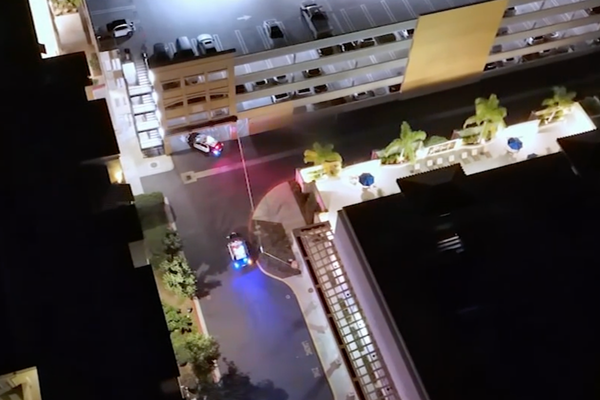
Russia is guilty of inciting genocide and having the intent to commit genocide in Ukraine, legally obliging other countries to stop it, according to a new report by more than 30 internationally recognised legal scholars and experts.
The report, compiled by two thinktanks, the New Lines Institute in Washington and the Raoul Wallenberg Centre for Human Rights in Montreal, found that there were “reasonable grounds to conclude” that Russia is already in breach of two articles of the 1948 Genocide Convention, by publicly inciting genocide, and by the forcible transfer of Ukrainian children to Russia, which the report notes is itself a genocidal act under article II of the convention.
The report concludes there is “a serious risk of genocide in Ukraine, triggering the legal obligation of all states to prevent genocide” under the convention. States will not be able to say they were unaware of the risk, it warns, but neither the report nor the 1948 convention stipulates what actions foreign governments should take. The report just notes “a minimum legal obligation on states to take reasonable action to contribute toward preventing genocide and protecting vulnerable Ukrainian civilians from the imminent risk of genocide”.
Joe Biden labelled Russian atrocities in Ukraine as genocide in April, and some other governments have followed suit, though the state department said it was ultimately up to a court to determine. The chief prosecutor of the international criminal court, Karim Khan, is leading an investigation of war crimes and has the authority to bring charges of genocide if he feels there is evidence of intent to “destroy, in whole or in part”, the Ukrainian people.
“I’ve never seen anything like this report this early during a conflict,” said Tanya Domi, one of the expert contributors to the report, and an adjunct professor at the Columbia University School of International and Public Affairs. “I think the documentation of crimes in Ukraine outstrips anything that we’ve seen in the recent past.”
The report finds ample evidence of incitement to genocide, noting the Kremlin leadership and Russian state media commentators have consistently denied the existence of a distinct Ukrainian identity, “implying that those who self-identify as Ukrainian threaten the unity of Russia or are Nazis, and are therefore deserving of punishment”.
“Denial of the existence of protected groups is a specific indicator of genocide under the United Nations guide to assessing the risk of mass atrocities,” the report said.
It also looked at the language used by Russian officials depicting Ukrainians as somehow subhuman, with terms like “zombified”, “bestial” or “subordinate”, or as diseased or contaminated, using words like “scum” and “filth”.
“What they’re saying is: if you’re Ukrainian you’re a Nazi, and therefore we’re going to kill you,” Domi said. “They are saying this is a Nazi regime and that means that they are pursuing Ukrainians and the Ukrainian state for the purposes of elimination and destruction.”
By issuing blanket denials of the atrocities and by rewarding soldiers suspected of mass killings, as Putin did with the units that were in Bucha at the time of the mass killings of civilians there, the Kremlin is enabling Russian forces to commit more war crimes and conditioning the Russian public to condone them, the report said.
The public incitement at the time of the invasion points towards a genocidal plan, the experts argue, as does the pattern of atrocities committed: the mass killings, the shelling of shelters and evacuation routes, and the indiscriminate bombardment of residential areas.
In that category, the report points to the sieges of cities such as Mariupol, the 248 attacks on Ukraine’s healthcare system documented by the World Health Organization, and the destruction or seizure of basic necessities, humanitarian aid and grain.
A systematic pattern of rape and sexual violence is also part of an overall picture of atrocities that point towards genocidal intent, the experts said, as is the forcible transfer of over a million people to Russia, including more than 180,000 children. The report cites Ukrainian officials as pointing to planned reforms in Russian legislation to accelerate adoption procedures for children from the Donbas, while abducted Ukrainian children have been forced to take Russian classes.
“I think the forced transfers of people is just one of the most egregious crimes because that shows intent to remove them from their country. There is no ability of those individuals to resist,” Domi said.
The international court of justice ruled in 2007 that state parties to the Genocide Convention had an obligation to take preventive action when they learn of, or should have learned of, the existence of a serious risk that genocide will be committed.
“Each state then will determine whether it has the means to help deter those suspected of preparing genocide and take action as the circumstances permit,” David Scheffer, a former US ambassador at large for war crimes issues and now a senior fellow of the Council on Foreign Relations, said. “There are many options: provision of military weaponry, humanitarian and refugee aid, economic sanctions, diplomatic pressure, and even military intervention, that complies with the UN Charter.”







